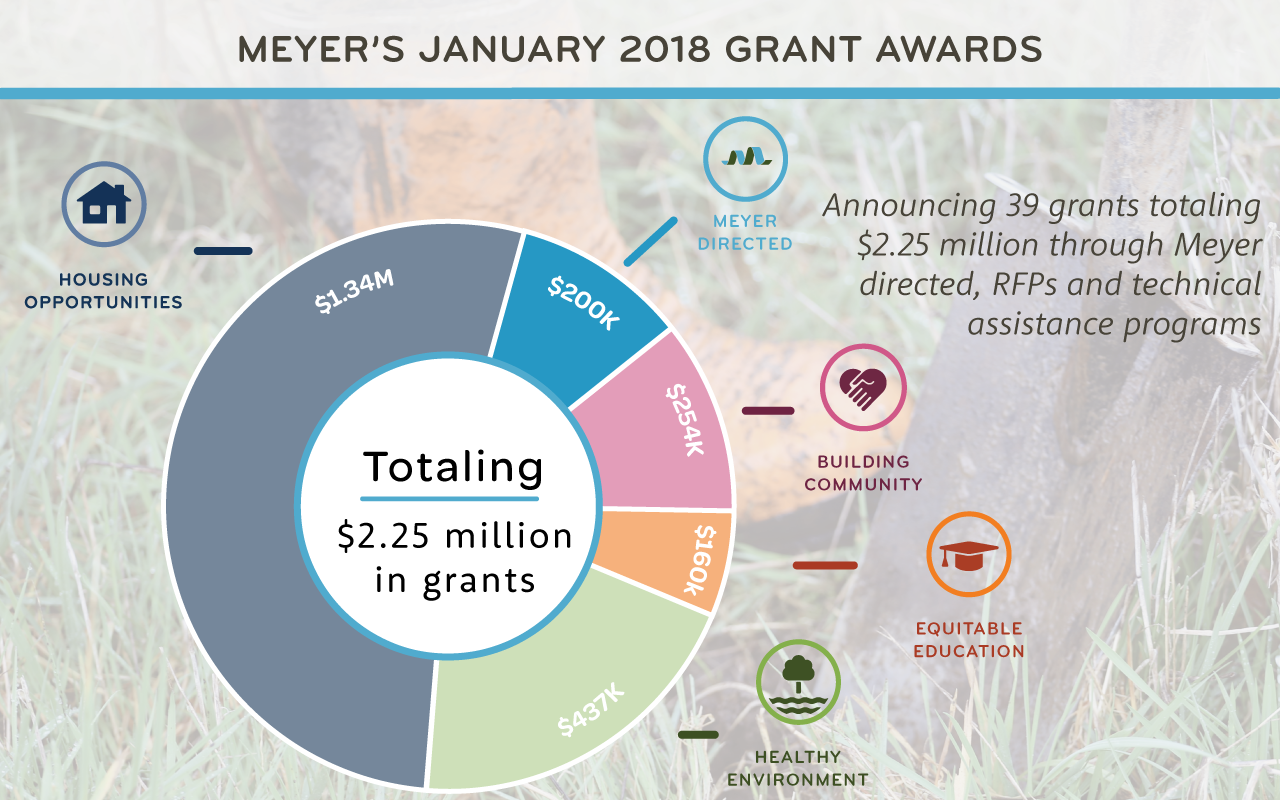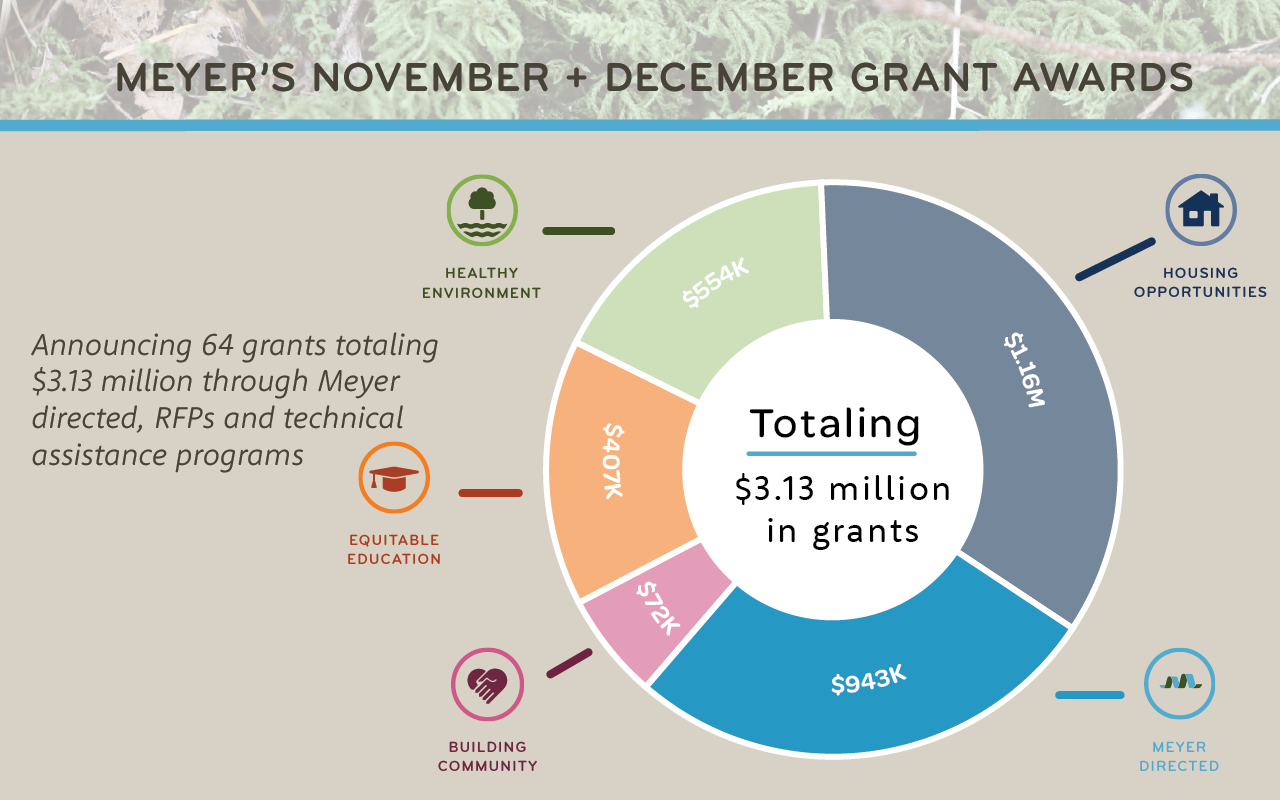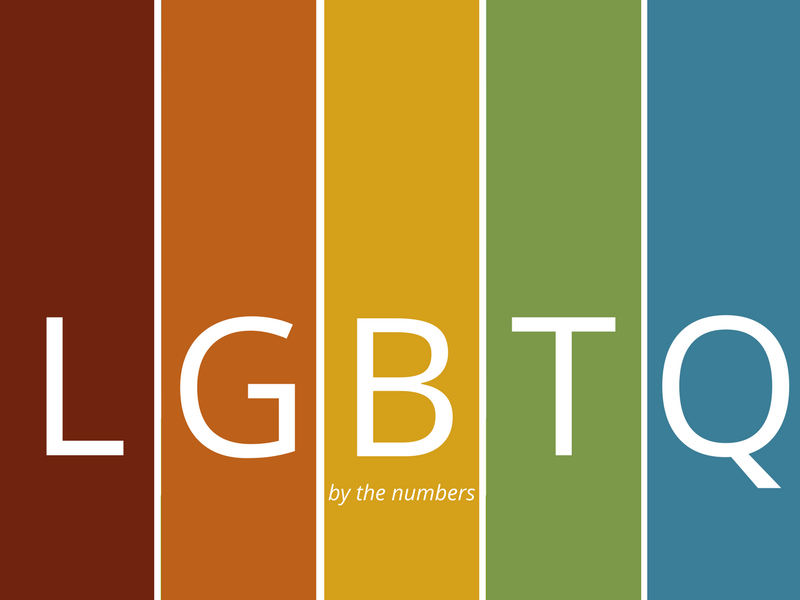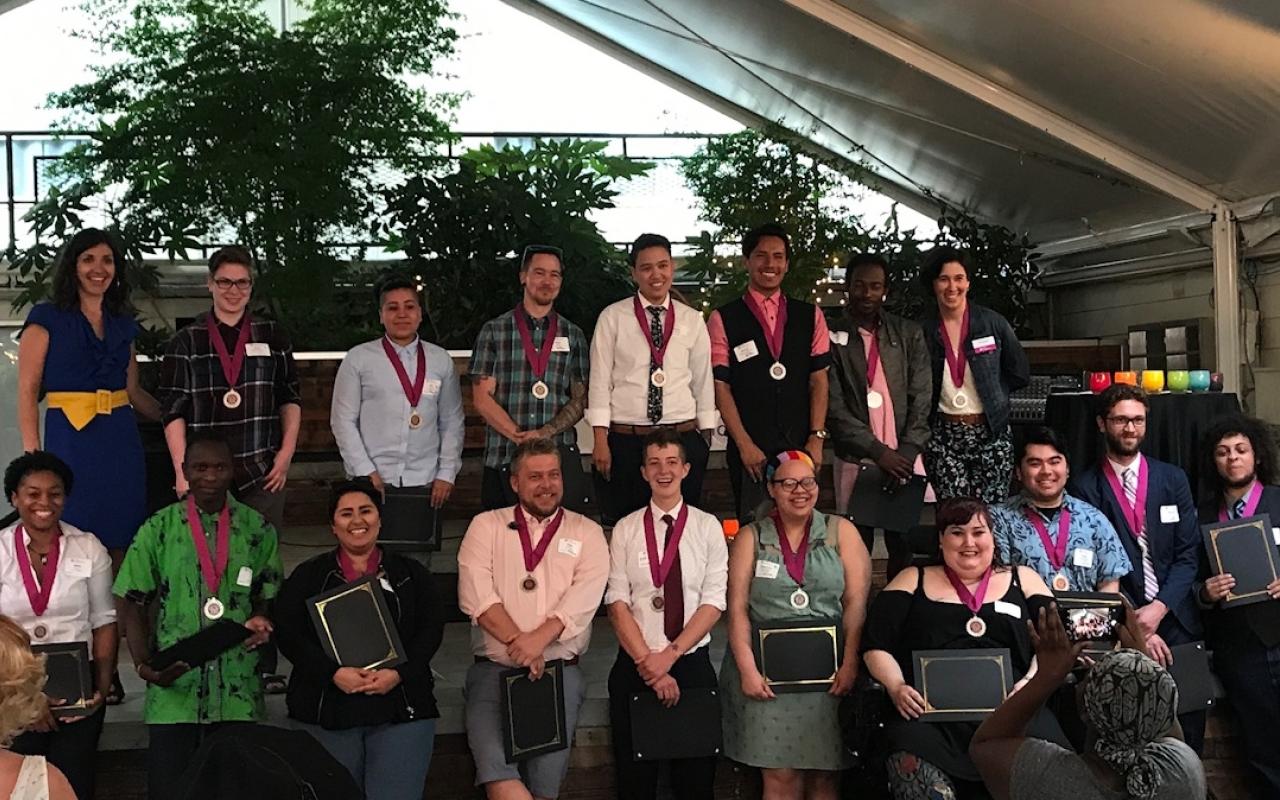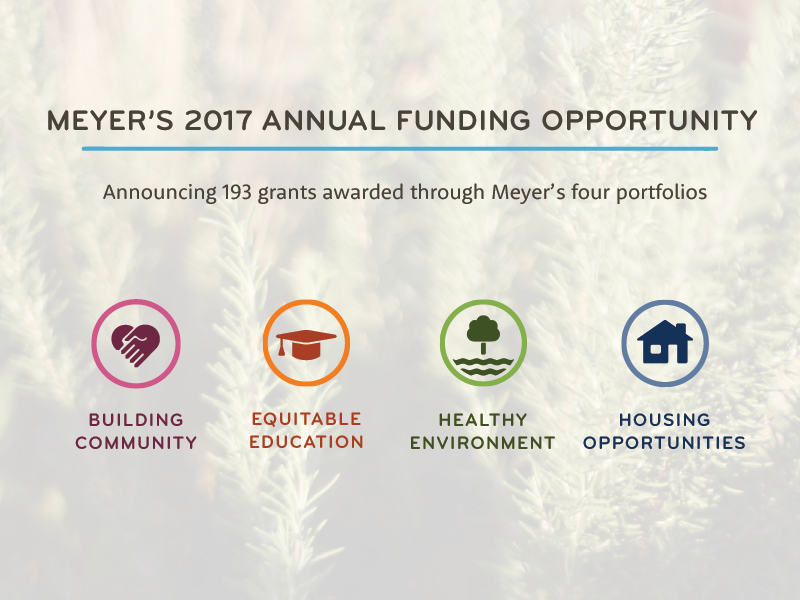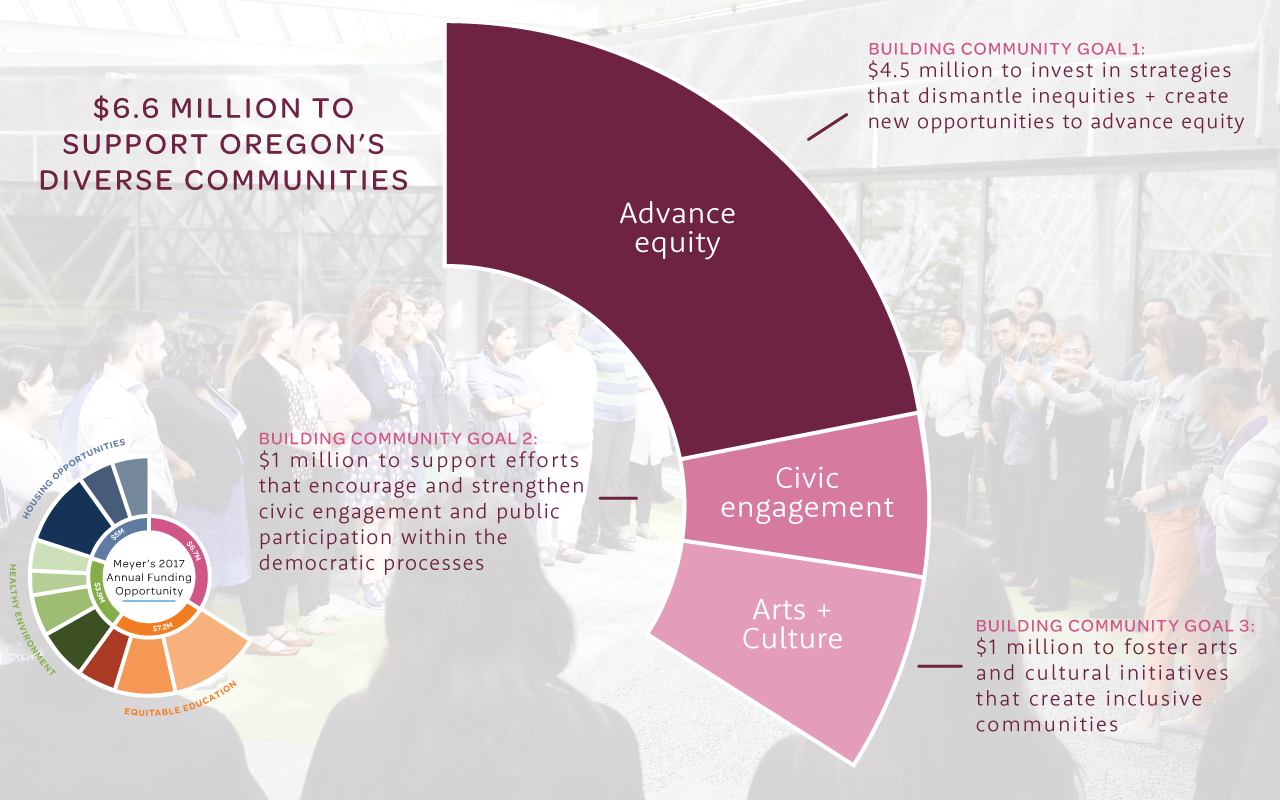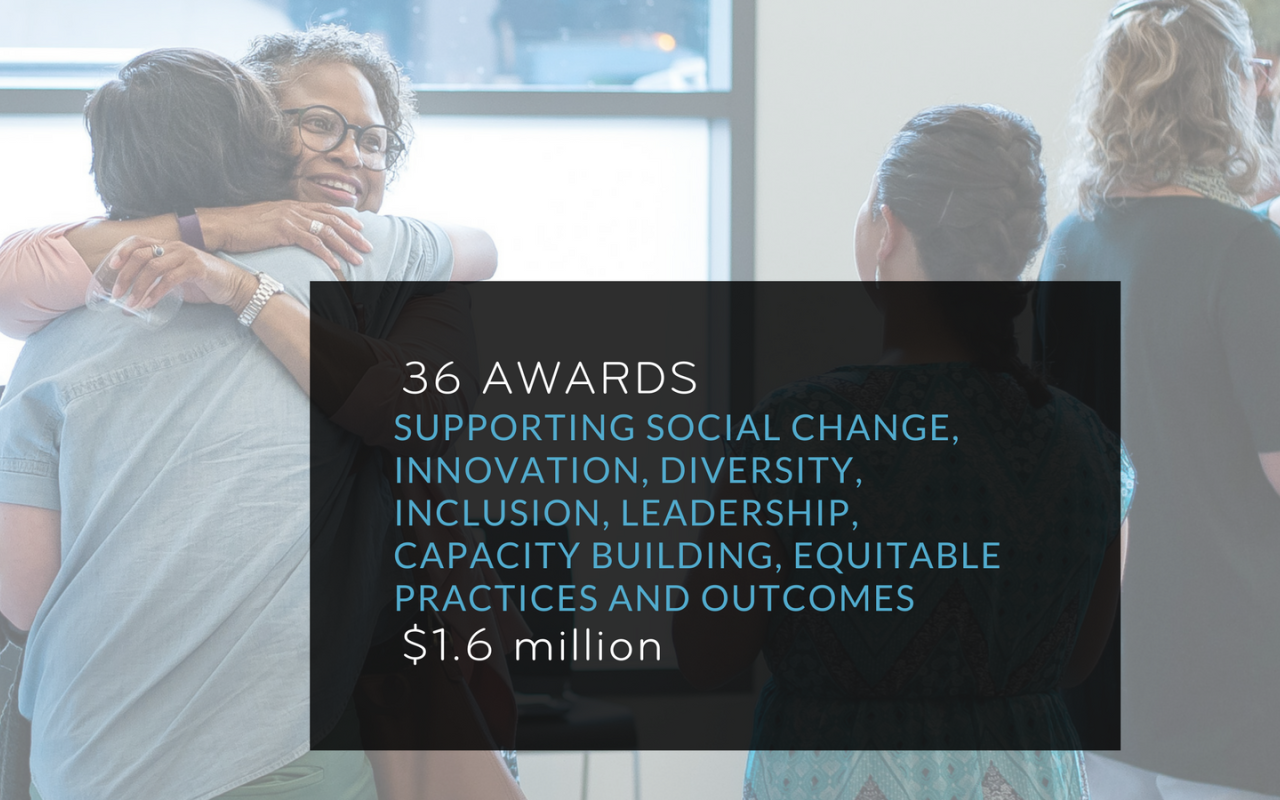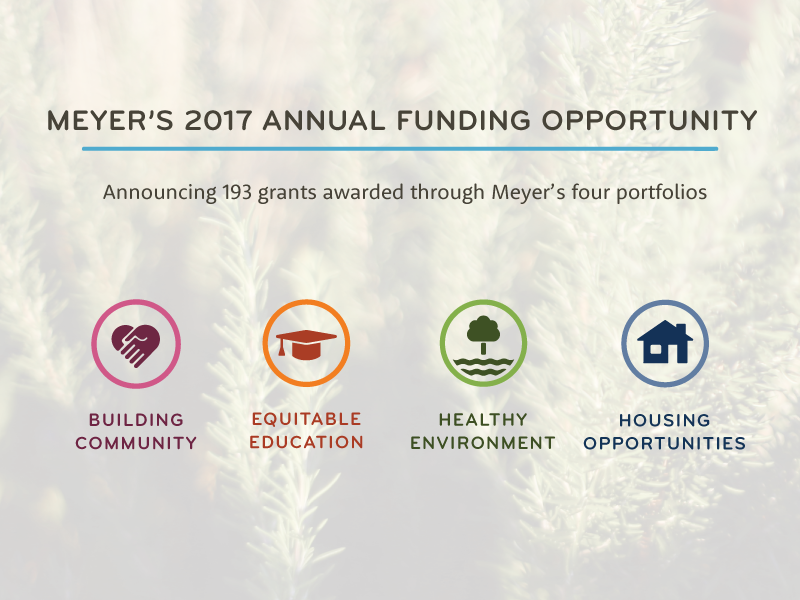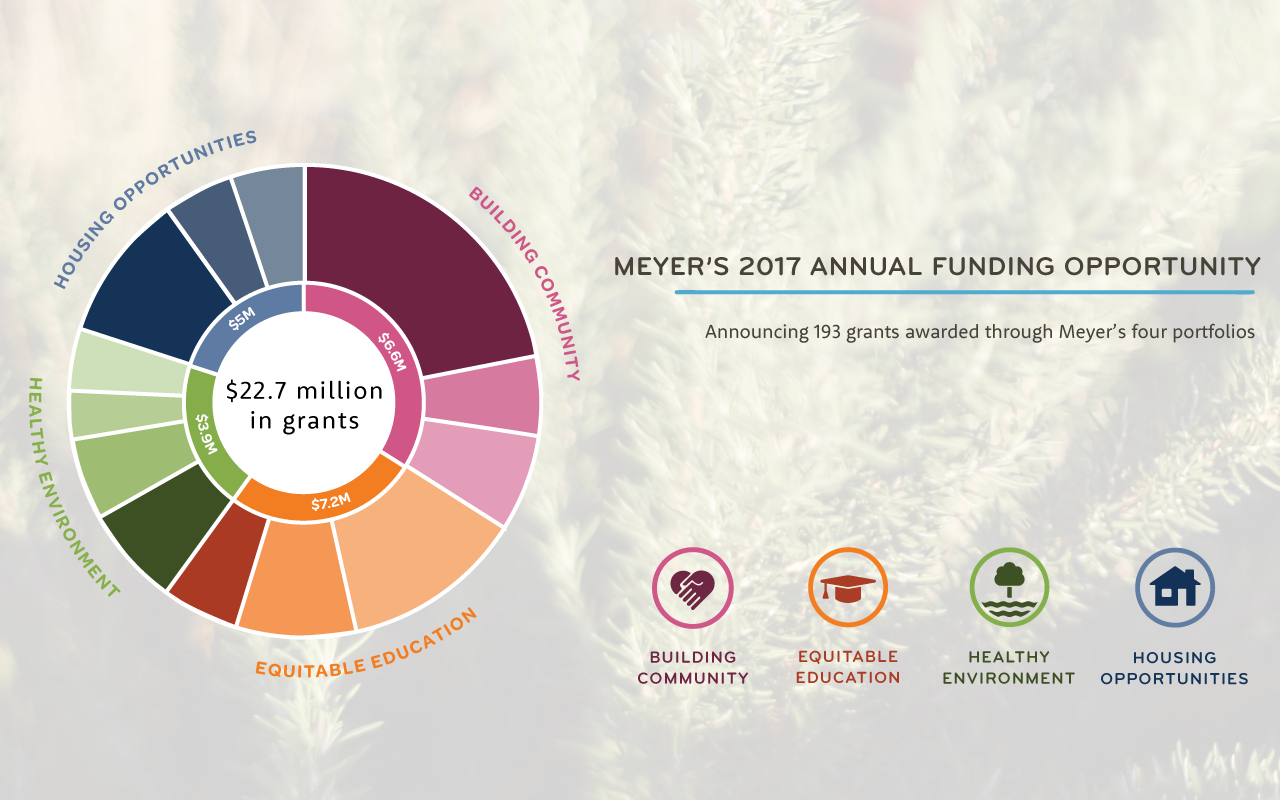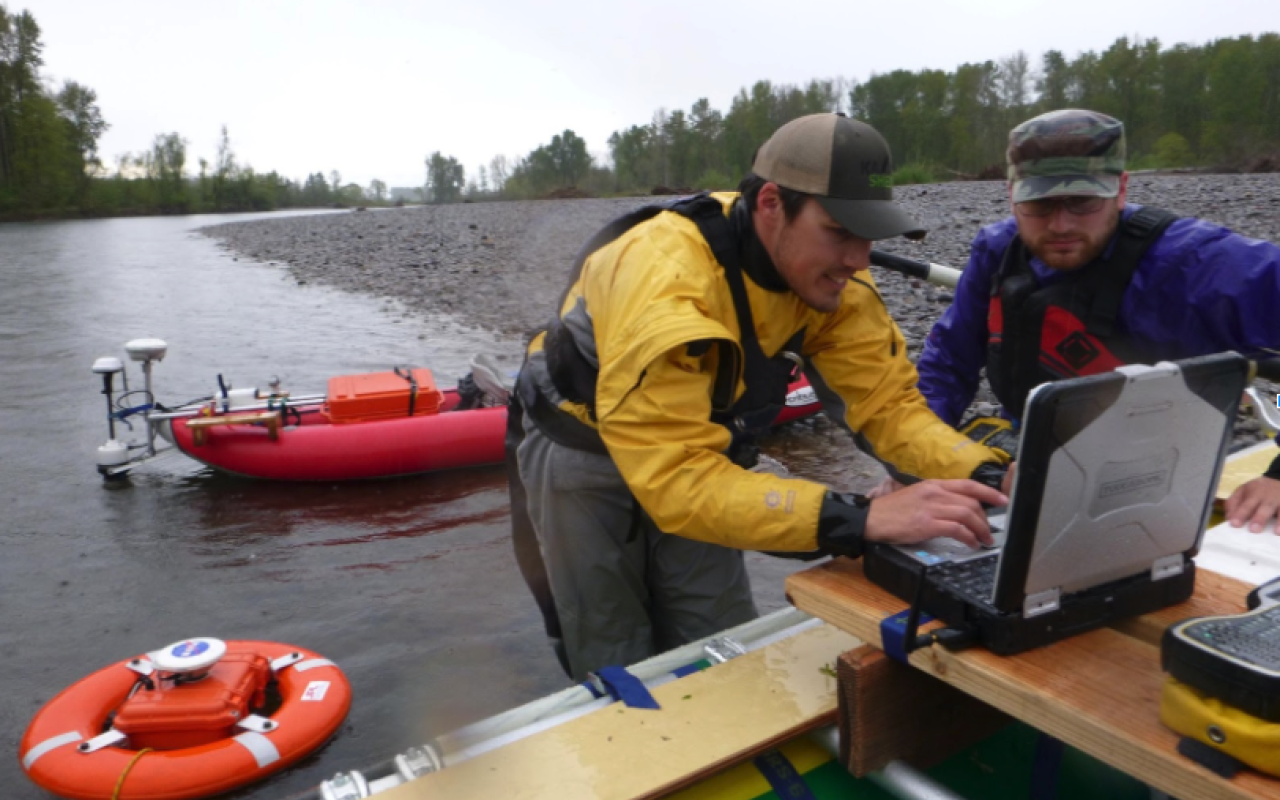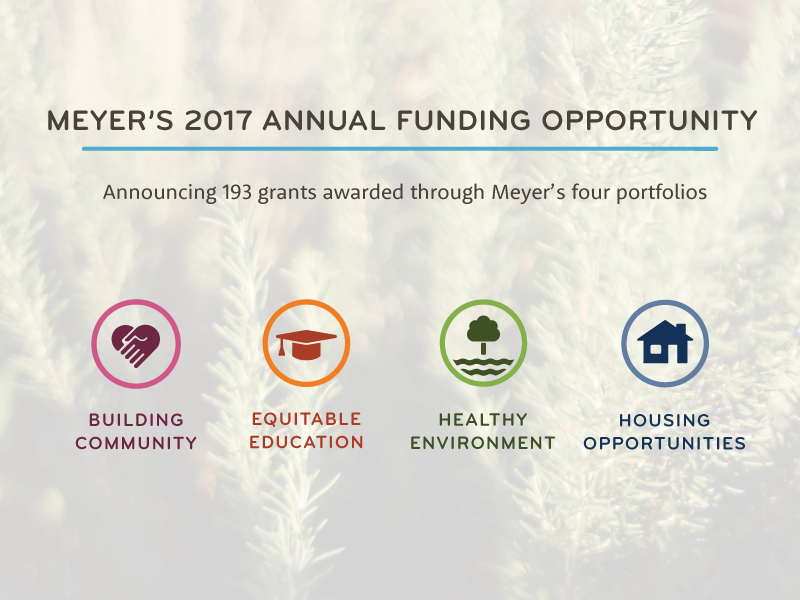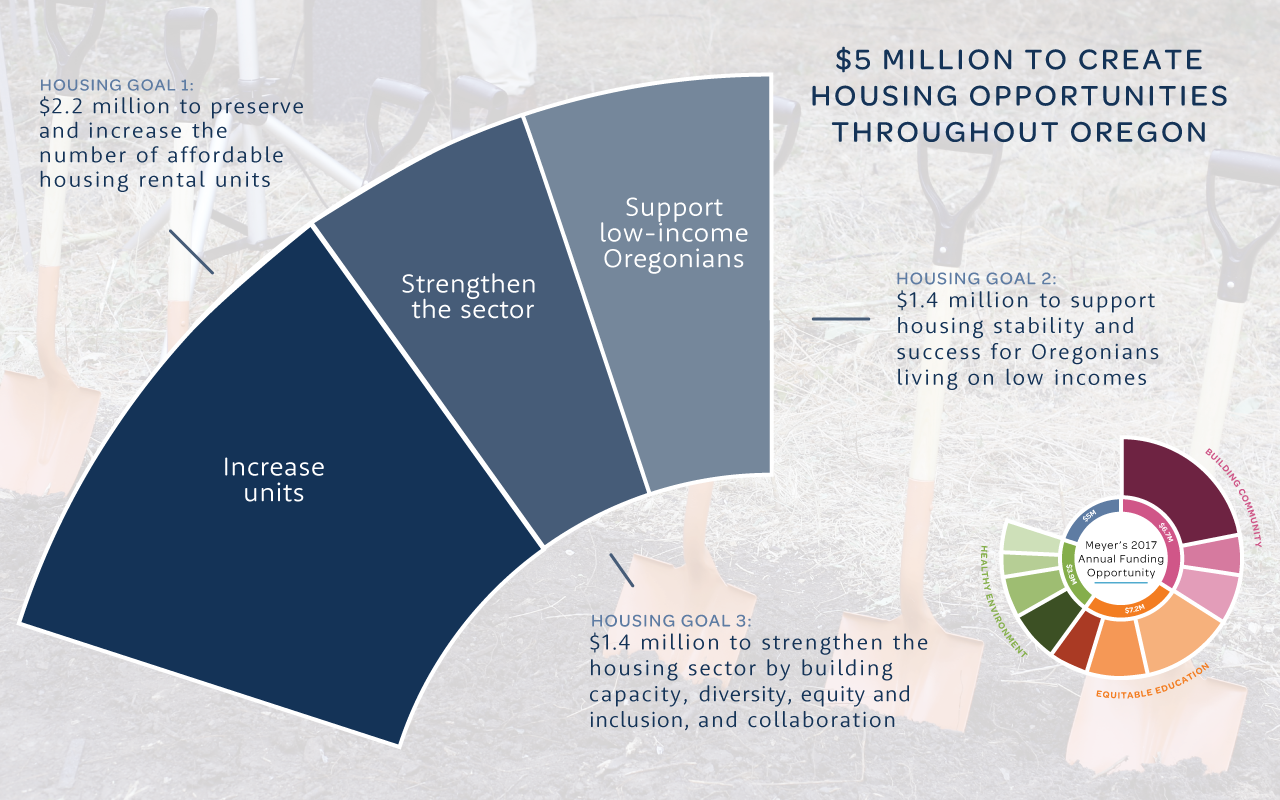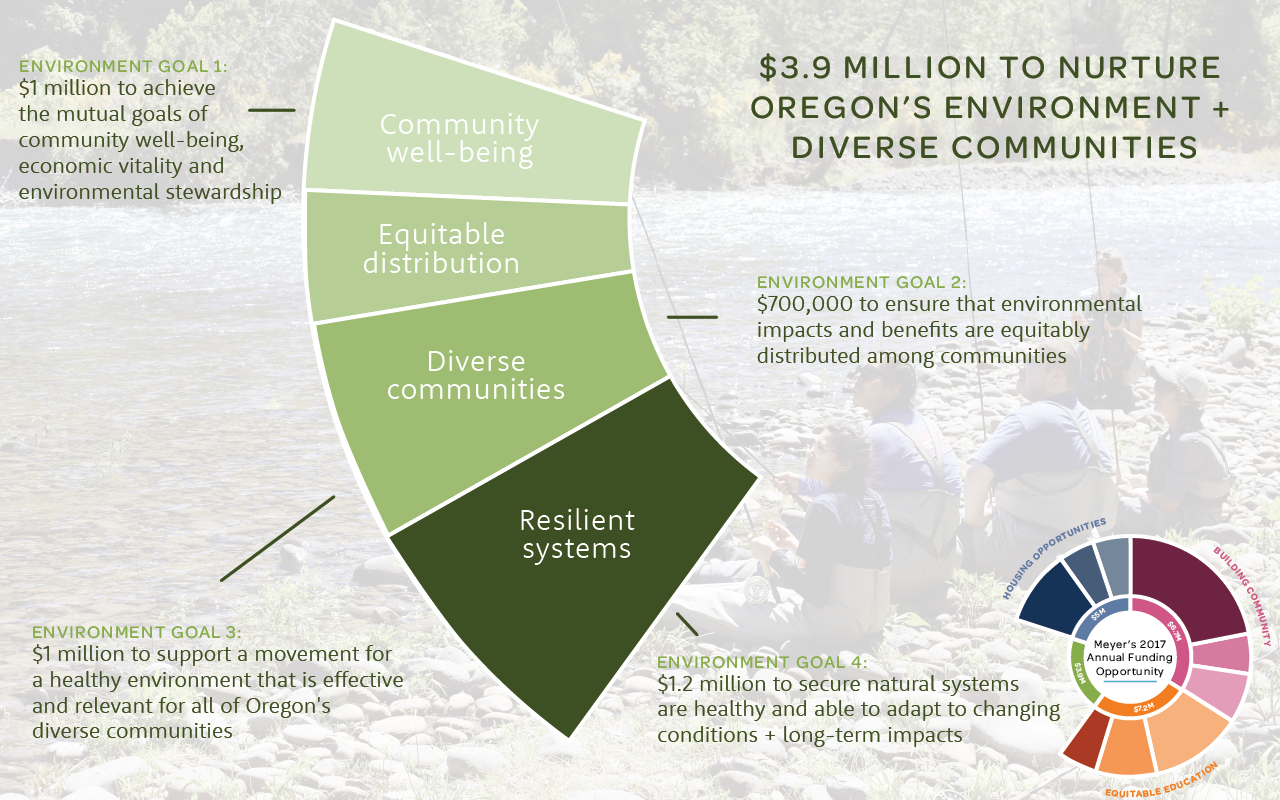Supporting affordable housing, healthy watersheds & rural immigrants and refugees
Each year, the bulk of Meyer’s funding is awarded through an open annual funding opportunity. Our 2018 Annual Funding Opportunity will launch March 15. Please join us for one of our upcoming in-person or virtual information sessions to learn more about our vision and funding goals, and what we look for in our funding partnerships. You can see the schedule and RSVP for a session here. We look forward to connecting with you soon!
In the meantime, we are excited to share with you our January grantmaking: 39 grants totaling $2,251,017. These are grants made through our program initiatives, funder partnerships and other Meyer-directed awards. What an amazing way to kick off 2018!
This year, the Museum at Warm Springs is celebrating its 25th anniversary as a cultural treasure by hosting documents of the Treaty of 1855. Meyer is contributing to this unique and timely opportunity by providing $200,000 to support the museum in hosting the document and carrying out a year of programming centered on treaty rights. Stay tuned in the coming months to learn more about the Confederated Tribes of Warm Springs and the museum’s anniversary events.
We also continue to engage in the Oregon Immigrant and Refugee Funders Collaborative alongside our partners at the Collins Foundation, MRG Foundation, Oregon Community Foundation and Pride Foundation. In January, Meyer provided $26,000 in follow-on funding to the Rural Organizing Project for statewide organizing to defend and protect rural immigrants and refugees. Efforts include trainings, local inclusivity campaigns, rapid response infrastructure building, intervention with law enforcement and building support for statewide advocacy. January also marks a year of quick response grants addressing crucial and time-sensitive issues facing immigrants and refugees, most of which were made as part of this funder collaborative.
More than half of the funds awarded in January — $1.34 million — were through our Housing Opportunities portfolio, primarily to support our nonprofit housing partners in preserving and expanding much-needed affordable housing across the state. Grants included continued support for two longtime partners in our Affordable Housing Initiative for their important and unique roles in affordable housing preservation. These investments include $300,000 in the Network for Oregon Affordable Housing (NOAH) for coordination of the Oregon Housing Preservation Project, which preserves affordable housing and federal rent subsidies. Over the past 10 years of our partnership with NOAH, it has preserved 230 properties, representing 10,684 units across the state, the vast majority of which are rent assisted. It has also helped to retain $1.2 billion in rent subsidy and secure millions of state dollars to support affordable housing. We are also making a $220,000 investment in CASA of Oregon to continue supporting conversion of manufactured home communities into resident-owned cooperatives. To date, CASA has helped to convert 13 resident-owned parks, representing 827 homes. The vast majority of parks have preserved precious housing in rural Oregon communities.
As part of our Affordable Housing Initiative’s Sustaining Portfolios strategy, we awarded $360,000 to five housing organizations to implement property-specific portfolio preservation plans. These grants have wide reach across our state, supporting affordable housing preservation in Lincoln City, Roseburg, Bend and The Dalles, as well as Benton, Columbia, Jackson, Lane, Linn, Multnomah and Washington counties.
In support of new housing, we are pleased to have expanded our program-related investment with Community Housing Fund, which will provide important loan capital to finance affordable housing projects in Washington County and four adjacent counties. The $150,000 addition approved in January brings our total loan investment to $250,000. And we are excited to support Northwest Housing Alternatives with a $250,000 grant to help construct affordable family housing in central Milwaukie.
We remain so grateful for these organizations and our many other nonprofit partners for their work toward ensuring that every Oregonian has a safe, stable and affordable place to call home.
Through our Healthy Environment portfolio, we awarded 11 grants totaling more than $436,500. Our Willamette River Initiative continued its investments in restoration, including $275,000 to support six watershed councils in their continued work toward 10-year restoration targets in the Calapooia, Long Tom Luckiamute, Marys River, and Middle Fork, North and South Santiam watersheds as part of our multi-funder model watershed program. Other Healthy Environment awards included $50,000 grants to Voz Workers’ Rights Education Project to help day laborers gain access to green job opportunities; Trust for Public Lands for mapping and analysis of Oregon communities based on their social, economic and environmental characteristics; and Columbia Land Trust to support diversity, equity and inclusion activities.
Two grants were made through our Building Community portfolio, including a $35,000 award to support Oregon Recovers' statewide community mapping process to identify service gaps in recovery support for rural and diverse Oregon populations and to generate policy improvement recommendations.
Finally, a number of grants will support Meyer’s strategic engagement with national and regional leaders in philanthropy that align with and advance our values and priorities. Examples include $45,000 grants to the Alliance for Justice to support the Bolder Advocacy Initiative, which promotes active engagement in democratic processes by giving nonprofits and foundations the knowledge and tools to advocate effectively, and in support of the U.S. Impact Investing Alliance, which works to support the growth of impact investing and help build the impact investing ecosystem with stakeholders. Other awards include support for Native Americans in Philanthropy, Hispanics in Philanthropy, Grantmakers Concerned with Immigrants and Refugees and Grantmakers for Effective Organizations, among other philanthropic partners.
You can see all our January awards here.
Stay tuned for our 2018 Annual Funding Opportunity launch in March — I hope to see you at one of Meyer’s information sessions. We look forward to exploring opportunities to work together in creating a vibrant Oregon where each and every one of us can truly thrive.
— Candy
